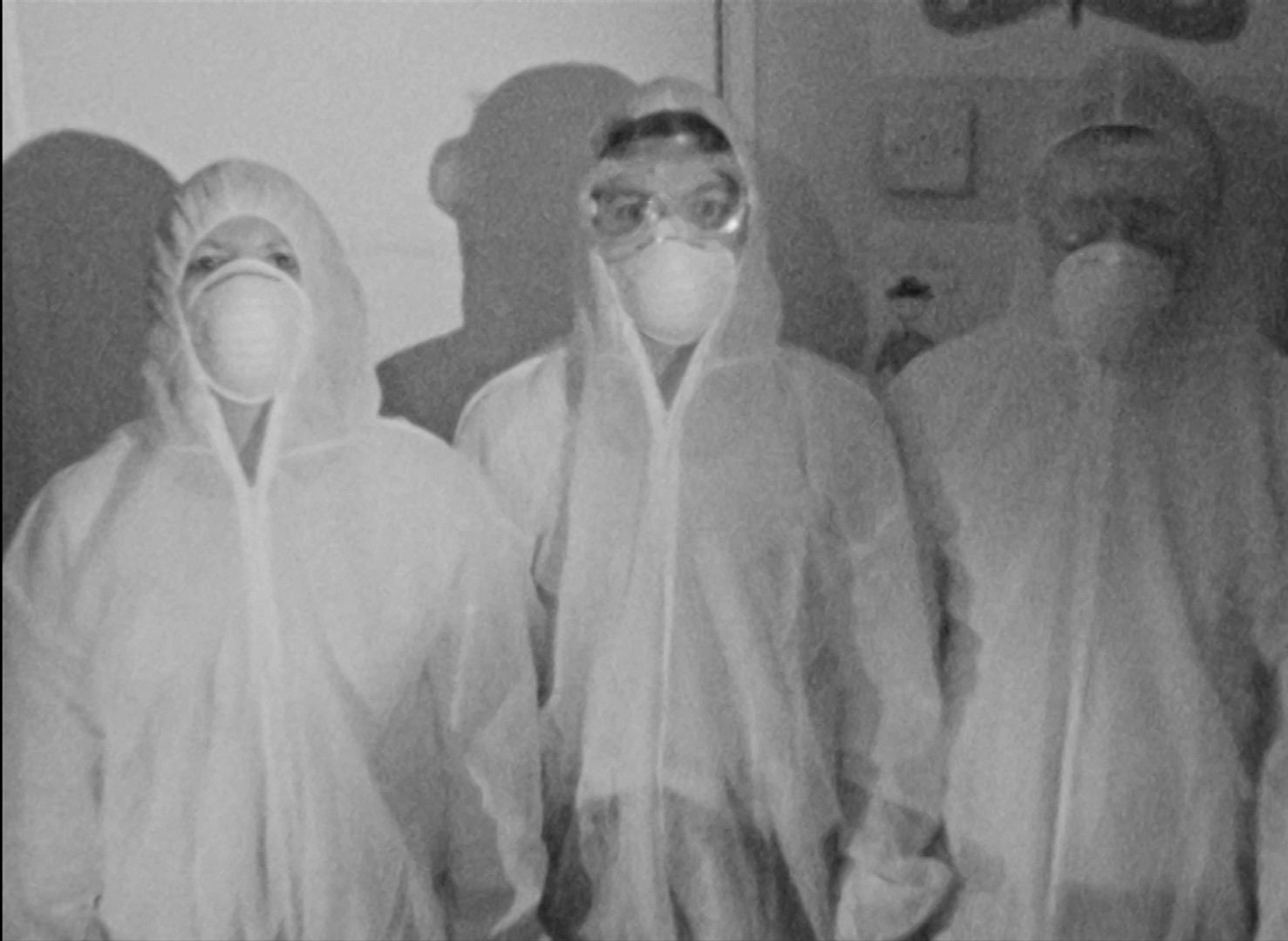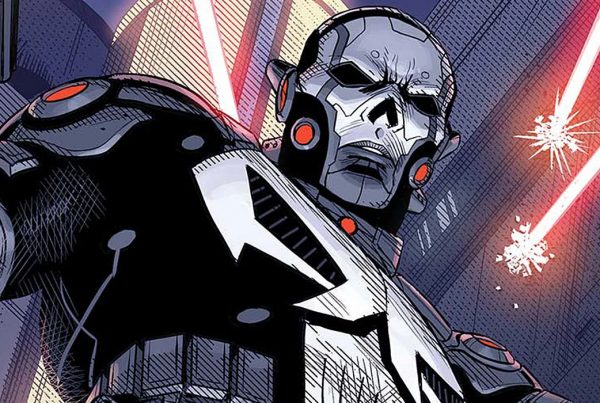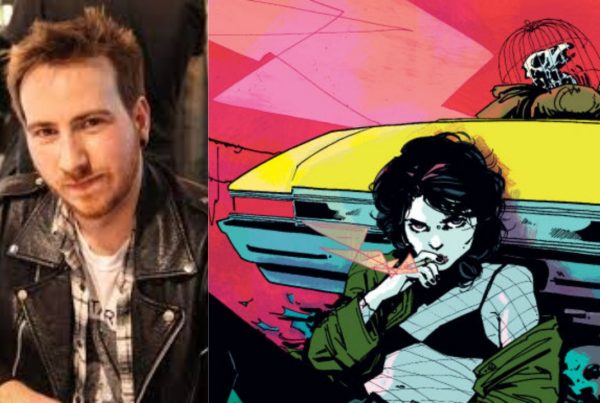With the National Virtual Version of the Sydney Science Fiction Film festival starting on November the 4th, DAVID O’CONNELL spoke to director Lindsay Hallam and writer Liam Dunn about their short film They Called Me David. Both former Perth residents, they have been involved with film in numerous capacities for a number of years, with Hallam being Senior Lecturer in Film at the University of East London (as well as a writer of many books and articles focused on horror and science fiction film and TV, and director of the documentary Fridey at the Hydey), and Dunn being a London based Australian critic working primarily in the genre of sci-fi and horror. They Called Me David marks their first film created in their beloved genres.

They Called Me David
What inspired They Called Me David?
LIAM: I have always found the Atomic Age/Cold War era of history extremely fascinating. There was a prevailing feeling in America that scientific progress should be made by any means necessary in order to fight communism. Whether its nuclear arms or the CIA mind-control project MKULTRA, the powers-that-be would stop at nothing to beat the Soviets, no matter how many lives were destroyed in the process. And so, by extension the films that greatly influence me explore this dark side of science, films such as Colossus: The Forbin Project and The Manchurian Candidate as well as the films of David Cronenberg.
LINDSAY: As well as the films Liam mentions here, I think what was inspiring was the format we chose. We shot on Super 8 using a (very) old camera and once we started experimenting with it, we were just so struck by how it makes everything look like it was from ’60s – the time of the Cold War that Liam loves so much. Most films are shot of digital now and it all looks very similar, it has that digital sheen and I wanted to get away from that, to make it look like it was some strange artefact from the past that had just been unearthed, or that somehow David could project their vision onto film.
What challenges does sci-fi offer as a genre, when filming on a budget?
LIAM: Well, from a writer’s point of view, it is important that the themes are there right up front. Sci-fi is all about the idea, the philosophy at the heart of the action and so that needs to be clear from the beginning. The challenge then is how to convey the ideas in the most succinct and cost-effective way possible. The story features secret laboratories, psychokinesis and astral projection, and I had to think how this could be translated on to the screen. So, I came up with the idea of experiencing the film through the eyes of a child, how they have a more naïve sense of the world around them, and that way the philosophy of the film can be conveyed in a more simplistic way, but which also makes the film even darker, in my opinion.
LINDSAY: Well, the big challenge was having no money and having to do everything ourselves (or asking friends to help for free). But necessity is the mother of invention as they say, so it was all much about how to solve problems in innovative – and cheap – ways. How to show David’s powers was difficult and having a climax that involved possibly the end of the world (or at least some huge nuclear explosion) was something we had to figure out how to realise. It would have been great to have a crew and someone who knew more about working with Super 8. We were learning as we went along (and having to wait weeks to get the film back with no idea if any of it worked was nail-biting!).

Director Lindsay Hallam
Beside challenges, does it offer any opportunities?
LIAM: Lindsay can speak more to this as director but from the start we did envision filming on Super 8 and using public domain stock footage to bolster what we shot in order to make the film reflect those Cold War influences I mentioned earlier. While this was a challenge in its own right, I think it resulted in giving us a film that looked like it was from that era, that it was an artefact much like the stock footage itself. I think that was a rare opportunity that really paid off.
LINDSAY: I am grateful that making the film made me step out of my comfort zone and try lots of new things. I have always been a bit scared of operating the camera and the technical aspects of filmmaking but here I had no choice but to figure out how to do it (maybe not completely successfully, but luckily that kinda fits the aesthetic). I also edited the film and discovered I absolutely love that part of the process. Once you do something like this it proves that anything is possible, you just have to get out there and start.
Lindsay, as a director, did you find yourself reaching into a bag of tricks used by some classic genre directors?
LINDSAY: I really wanted to push the lo-fi, lo-tech aesthetic associated with older SF film and using stock footage hopefully helps to sell that. The use of POV was there because I didn’t want to show David but just hear their voice, so it was left to the audience’s imagination as to what they looked like. I wanted David to be very ambiguous and genderless (they have a boy’s name but I asked my niece to do the voiceover). I was going for the look and feel of ’50s and ’60s schlocky B movies that were made on really low budgets for the drive-in crowd (think Jack Arnold, Roger Corman) although the story we have is a bit more serious and sad. But it was also really fun to play around with fake blood and make Liam overact terribly as his head started to explode.

Writer Liam Dunn on set.
What was it like for both of you to get your Cronenberg on?
LIAM: It was pretty great, to be honest. As the character is a child who doesn’t understand the power they have, it was fun to show in grisly detail what happens when this powerful child gets angry or scared, so Scanners became an obvious touchstone there. But the filming of it was extremely fun. Doubling as an actor in the film allowed me to smother myself in fake blood and scream a lot which should be the ultimate goal of any actor to be honest.
LINDSAY: I have loved Cronenberg films for years and writing about his films was a big part of my Honours thesis and PhD. Moving away from the theory and getting to emulate his work in a film was something I always wanted to do. Scanners inspires our big death scene, but we also watched his early short films Stereo and Crimes of the Future for some inspiration as well. He once said his films were hypotheses about the future of the human body, and while we have less focus on the body since you don’t see David, the idea of mutation and of science experiments gone wrong, of them beginning to revolt (in all senses of the word), was also something we riffed on.
Given the popularity of sci-fi in film for most of our lifetimes, does it still offer the filmmaker a space to explore social allegory?
LIAM: Absolutely. I think now more than ever. Of course, society changes and there are new concerns to be addressed through sci-fi (and in many ways a lot of sci-fi ideas are now becoming reality). Filmmakers such as Julia Ducournau, who just won the Palme d’Or for Titane is someone on the vanguard of what modern sci-fi can be. But also, in many ways a lot of the concerns of sci-fi storytellers in the past, like the Cold War era, are still relevant today. The Manchurian Candidate for instance is about identity and individualism in a world that is increasingly more homogenous and controlling, something I think we can all relate to now with the ubiquity of social media and the internet.
LINDSAY: I always tell my students that genre is a great vehicle to smuggle in radical and subversive ideas and social commentary. My favourite films from the genre usually have that extra level and subtext. Unlike David, most films don’t come from a hidden lab, they are created from a particular time and place; they almost can’t help but react to their context.

They Called Me David
How important are genre specific festivals like this for indie filmmakers?
LIAM: Extremely important. There are so many filmmakers out in the world with a unique voice who need an outlet to be heard. The internet has allowed us to put out work out there on our own terms for sure, but with all the other voices out there it’s easy to be drowned out. With genre specific festivals you can get your work seen by like-minded people, an audience ready to be receptive to your ideas.
LINDSAY: We are only submitting the films to genre festivals to do with either horror or science fiction (our premiere was at Frightfest in London). I don’t think it would stand much of a chance of being accepted in other more general short film festivals. We need to have an audience that is willing to buy into how it looks and the nature of the story, and who can have some fun with the low budget schlockiness of it. Genre festivals have the best audiences for that, they are the die-hard fans who live and breathe these films.
The National Virtual Version of the Sydney Science Fiction Film Festival runs from November 4-25, with the festival running November 11-14. Check the website for details and screening times.





